Today’s post comes from Assistant Zone Ecologist Pilar Manorome.
Spring is probably my favourite season as it brings new life to our parks in the form of migrating birds and emerging spring ephemerals, giving our forests their long-awaited pops of vibrant colours and contrast.
Most people know of the White Trillium — also referred to as Wake Robin or Large-leaved Trillium — as Ontario’s provincial flower. This is the flower featured on many of our provincial documents, from health cards to driver’s licenses.
Here are the top five fun facts about this iconic Ontario species:
1. Three is the magic number with trilliums
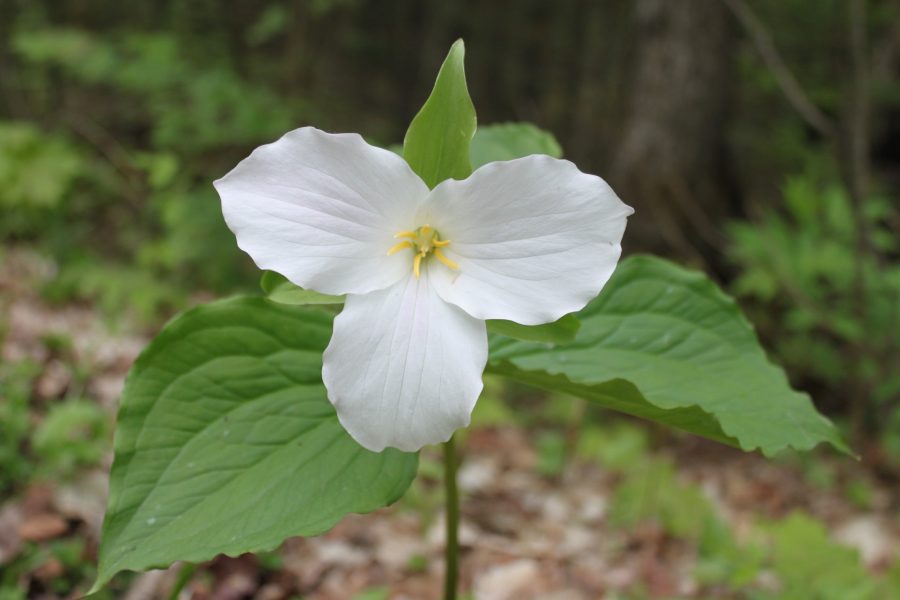
They have three broad leaves, three small green sepals, three petals, and a three-sectioned seedpod. Even their genus name, trillium, refers to this phenomenon.
2. Trillium seeds are primarily dispersed by ants
This dispersal method is known as Myrmecochory (try saying that three times fast!).
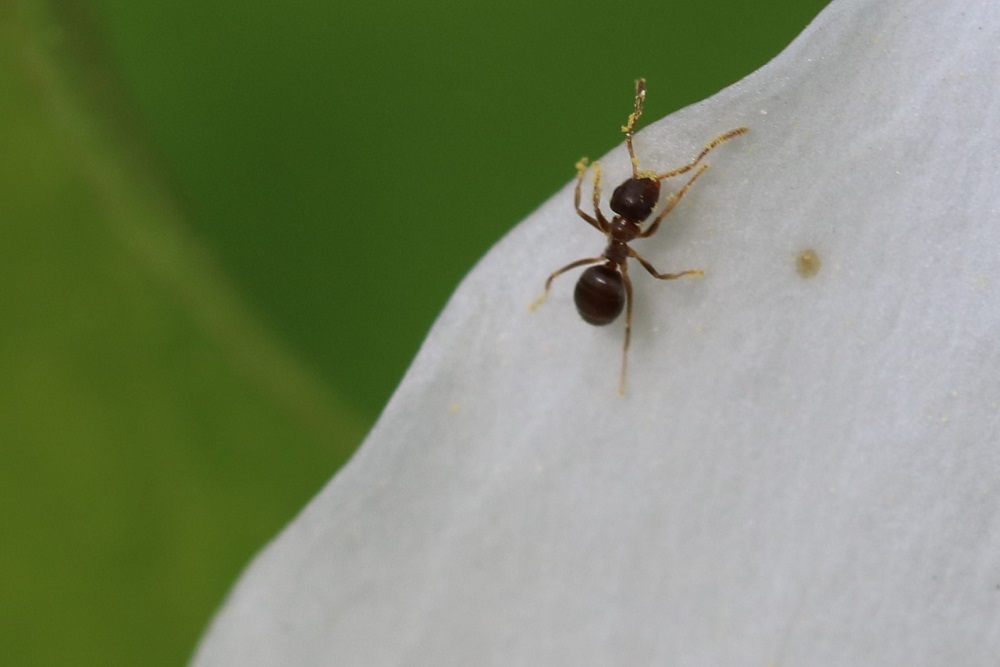
Ants are attracted to the protein-rich elaiosome on the seeds of trilliums, which they eat after carrying the entire seed back to their nests. The actual seeds are not harmed during this process, and are later discarded to grow a new plant.
3. The White Trillium is a favourite food of White-tailed Deer

In fact, many of our provincial parks use annual trillium surveys to understand the population of White-tailed Deer and their effect on the biodiversity of our forest’s understory.
4. If you pick a trillium, the plant may not have enough energy to survive throughout the winter
As a spring ephemeral, trilliums have a few short weeks in the spring to collect as much sunlight and nutrients as possible to be able to survive for the rest of the year.
If you pick a trillium in the height of its flowering glory, it may not be able to collect enough resources to survive.
5. There are five native trillium species found in Ontario
They are: White Trillium, Red Trillium, Painted Trillium, Drooping Trillium, and Nodding Trillium.
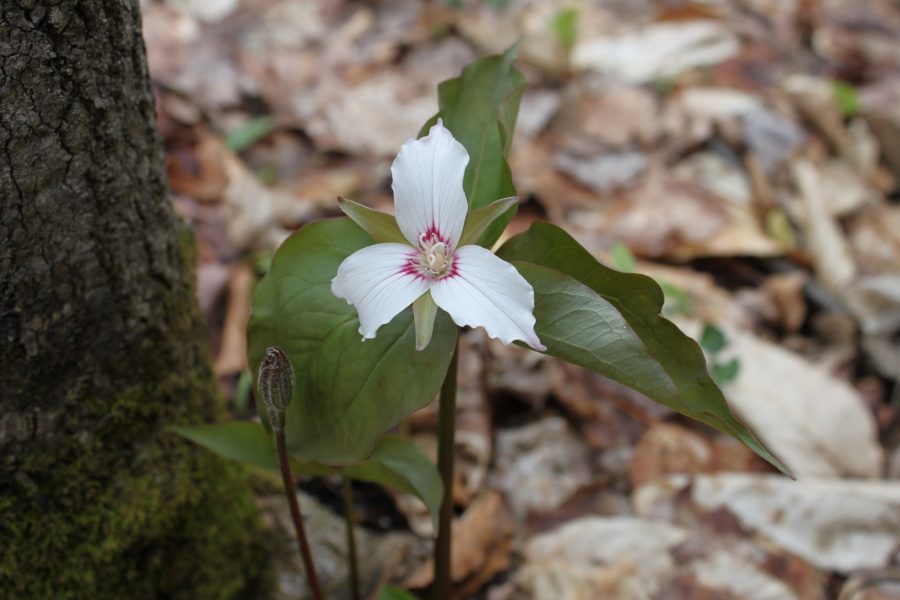
All are found in the understory of rich, deciduous, or mixed forests. The Drooping Trillium is actually a species at risk here in Ontario primarily due to habitat loss and degradation.
Care for a spring trillium walk?
These parks all have beautiful displays of spring trilliums:
Awenda Provinicial Park
Open year-round
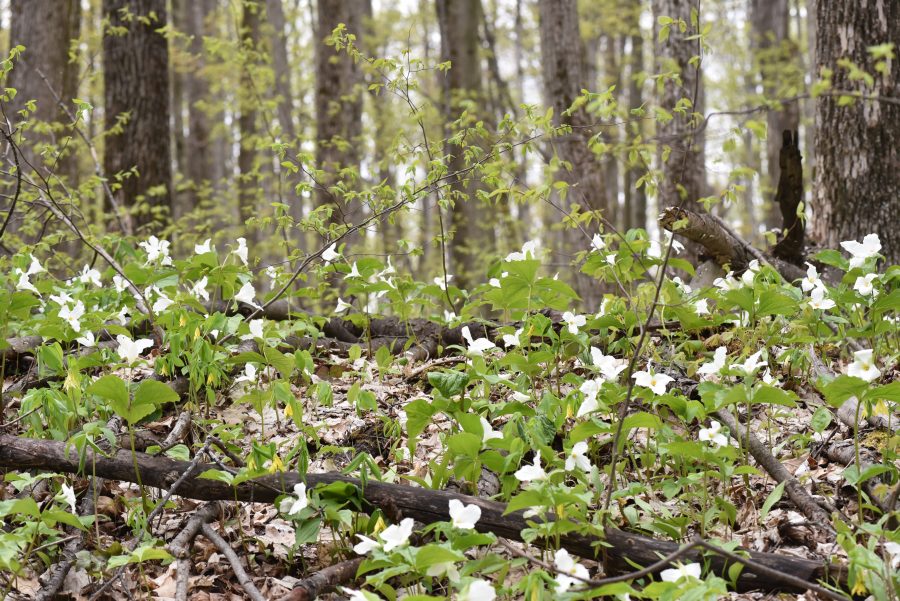
Protecting 2,900 hectares of forested land on the southern shores of Georgian Bay, Awenda offers a wonderful variety of hiking trails.
Earl Rowe Provincial Park
Open year-round
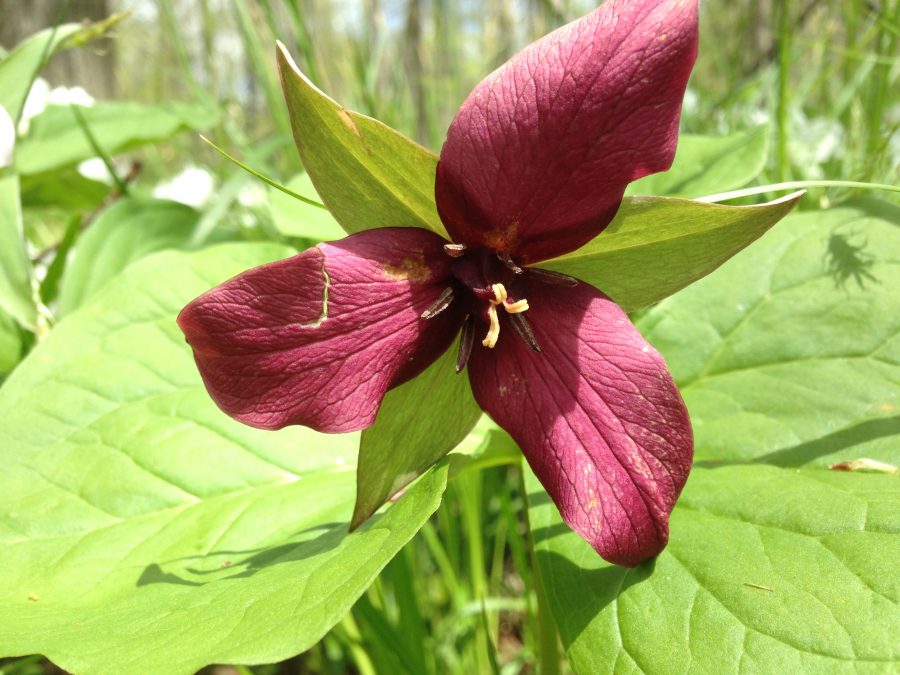
Just north of Newmarket, Earl Rowe is a lovely spot for a stroll with charming hiking trails including an accessible paved trail.
Arrowhead Provincial Park
Open year-round
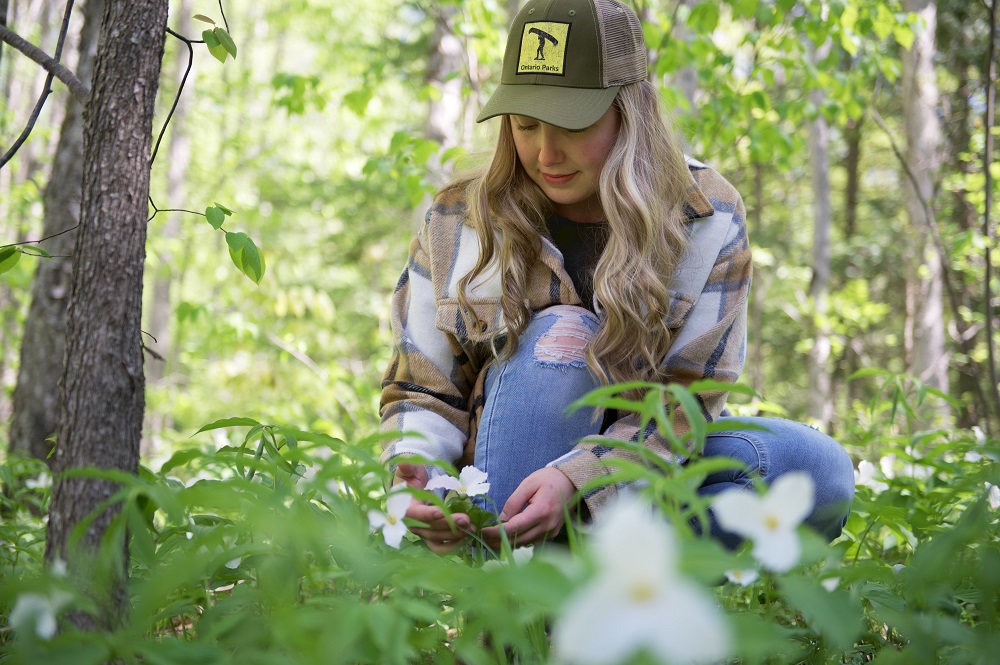
Located just outside Huntsville, Arrowhead’s 15 km of hiking trails are beautiful in the spring.
Rondeau Provincial Park
Open year-round

This popular park sits on the shores of Lake Erie, and its trails traverse a variety of ecosystems, all beautiful in the spring.
Bronte Creek Provincial Park
Open year-round
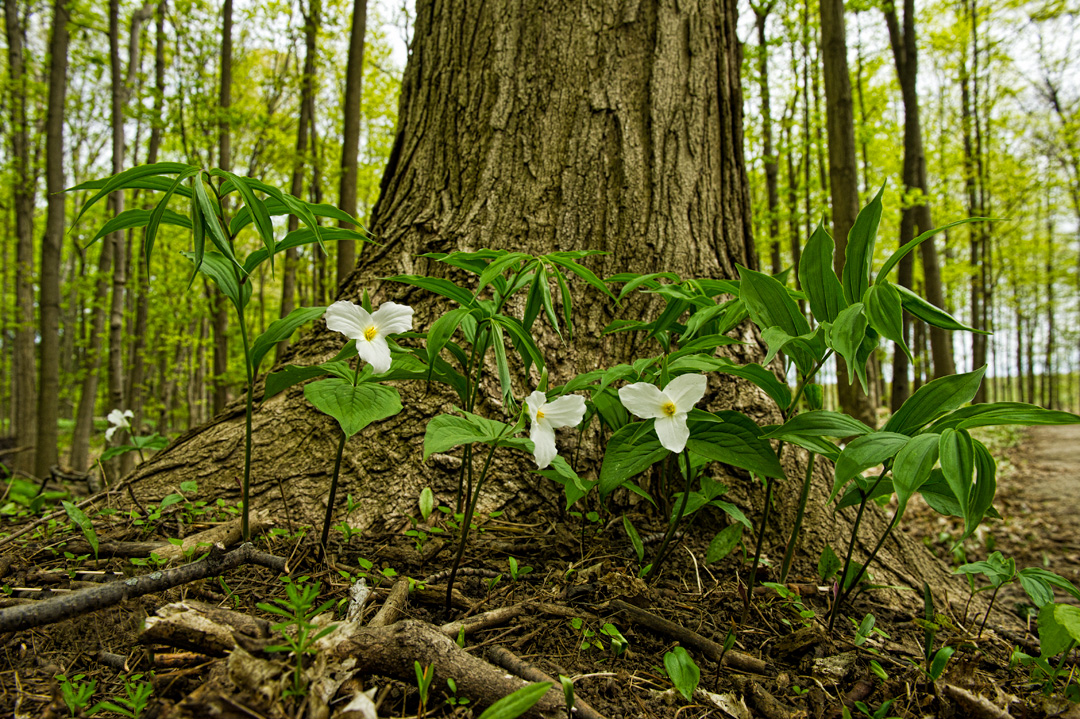
Located in Oakville, Bronte Creek boasts five great hiking trails that showcase park’s the natural beauty.
Mark S. Burnham Provincial Park
Opens May 5, 2023
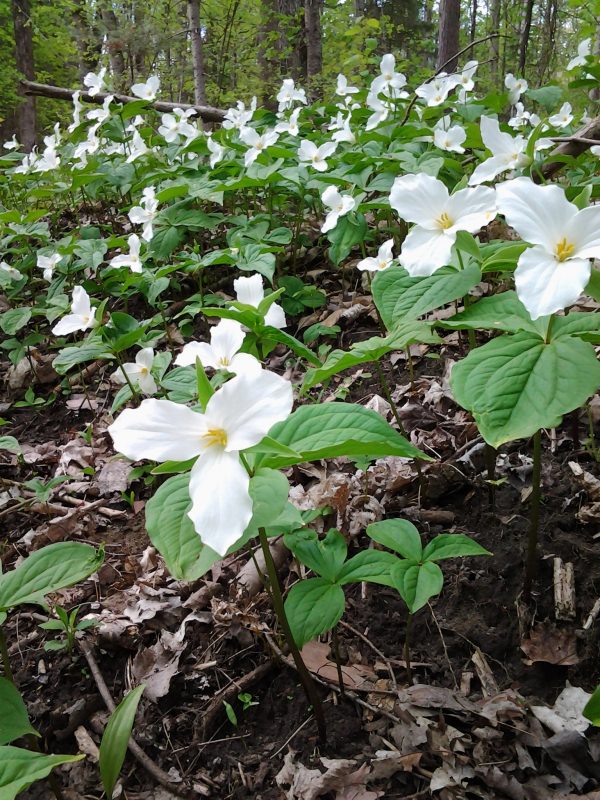
This Peterborough day-use park is great for a quiet walk in the woods or a family picnic.
Six Mile Lake Provincial Park
Opens May 12, 2023
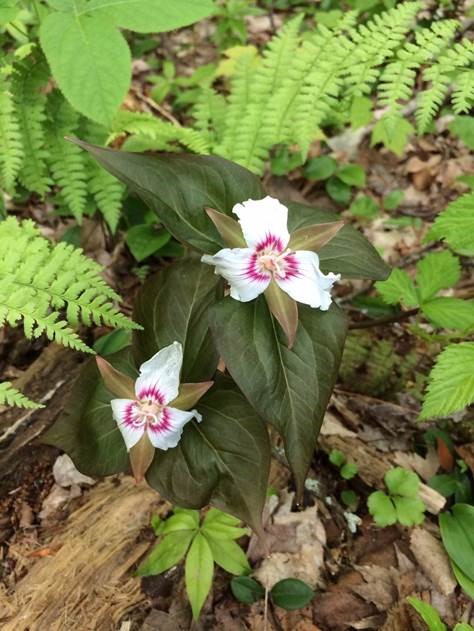
You can spot White Trilliums in Six Mile’s campground and trails. Visit Hardy Lake Provincial Park, a great place to hike and see the beautiful Painted Trillium along its trails.
Grundy Lake Provincial Park
Opens May 12, 2023

Grundy Lake is home to a bounty of spring wildflowers! Both Red and White Trilliums are making an appearance throughout the park’s campgrounds and trails.
Restoule Provincial Park
Opens May 19, 2023
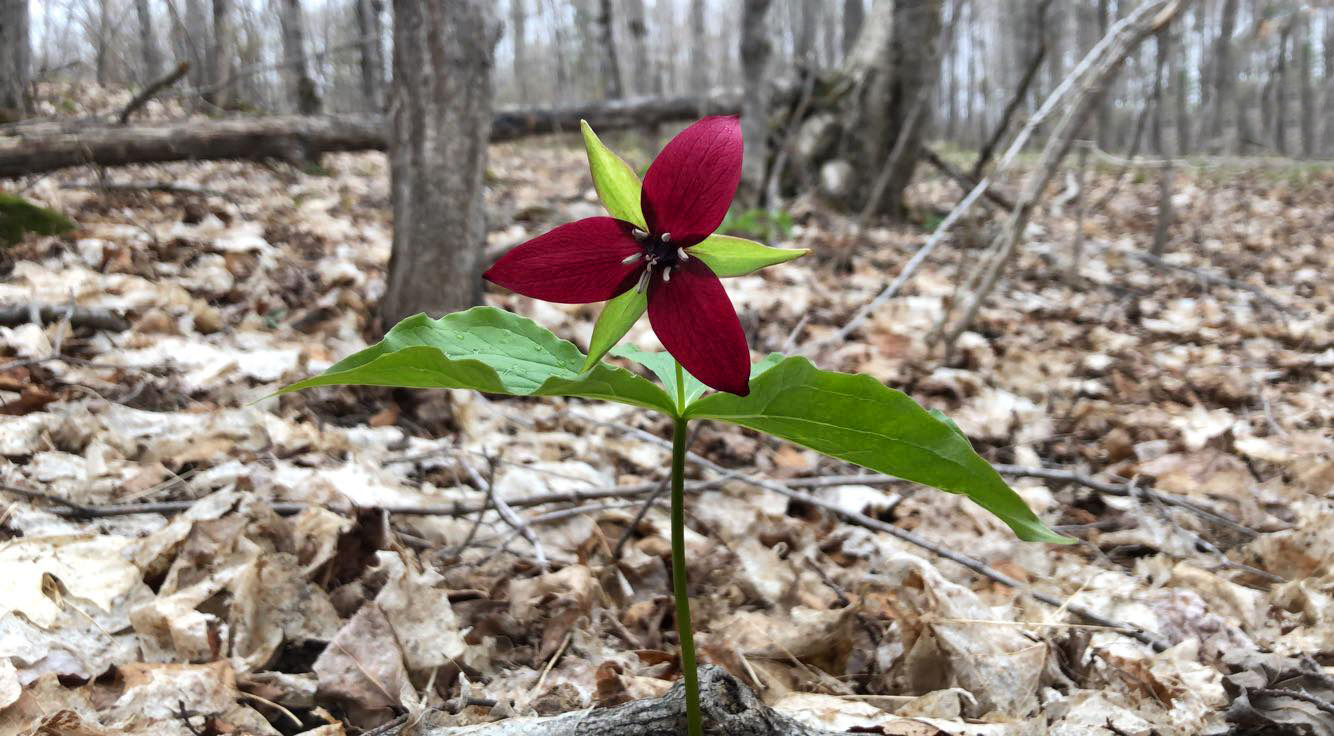
Red Trilliums and White Trilliums can be found growing through Restoule, taking advantage of the extra light hitting the ground before the forest leaves appear in all their green glory.
